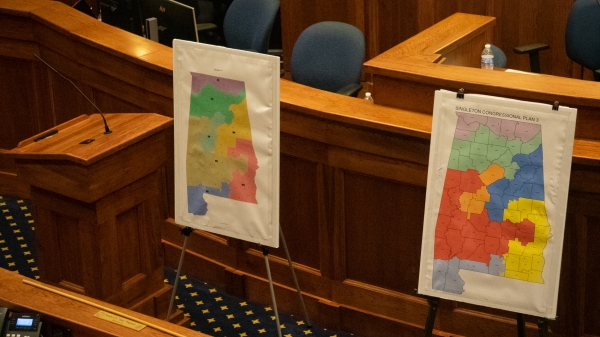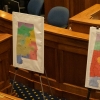|
Getting your Trinity Audio player ready...
|
It was a performance for an audience of one. The Alabama Attorney General’s Office day in federal court on Monday was, by all typical measures, pretty terrible. But the script from which Alabama solicitor general Edmund LaCour was working didn’t direct his performance towards the three-judge U.S. District Court panel.
No, it was meant for just one: A Supreme Court justice named Brett Kavanaugh.
Honestly, this should not have surprised anyone. The day Alabama’s GOP-led legislature passed a congressional voting map with only one minority district and a second that achieved only 40-percent Black, the game was obvious.
Alabama had no intention of complying with the district courts or the Supreme Court, which demanded that Alabama draw two minority districts, or something very close to it.
Instead, there was a plan concocted in a back room somewhere. A plan that several Alabama Republican lawmakers admitted in court on Monday that they knew nothing about and wanted no part of.
APR’s Bill Britt reported on this plan in the days after the new maps were approved. Citing a number of sources who were in the room when the plan was discussed, the story said Alabama Republicans, led by AG Steve Marshall and ALGOP executive director John Wahl, believed that the state’s failure before the Supreme Court in June was due to the fact that the case was limited to only the ruling of the district court.
But they believed that if they went directly after the Voting Rights Act, and specifically Section 2, that they could appeal to at least one justice. And the sources said they were told that Kavanaugh had allegedly let it be known, through some back channels or underlings or smoke signals, that he would be open to switching his vote if such a challenge materialized.
If so, Alabama could keep its gerrymandered maps that pack Black voters into a district. But more importantly, especially for Marshall, the tactic could result in the end of the VRA altogether.
If Kavanaugh likes gerrymandering even close to as much as he likes beer, Marshall and LaCour would be heroes within the GOP.
Sure, they’ll be villains forever in every movie and TV show made about this current era of discrimination and attacks on Black history and basic rights, but when has a conservative ever considered the long-term effects of anything?
So, there Alabama’s legal team was on Monday, engaged in an utterly absurd performance, in which they tried desperately to talk around the actual plan and avoid saying the secretive parts out loud. At one point, Judge Terry Moorer, a Trump appointee, flat asked LaCour if the state was deliberately disregarding the court’s directive in drawing a second minority district.
LaCour dipped and ducked as best he could, but ultimately he admitted that the state’s viewpoint is that it isn’t required to draw a second minority district. It must adhere to various principles of redistricting and follow some broad guidelines, but that the racial makeup of districts is not a factor.
In other words, the Voting Rights Act has no place in the process anymore.
Even if Alabama’s very actions in this case prove that the VRA should have a very prominent place in the process.
But for now, we likely know how the next several steps will unfold. Alabama will lose at the District Court level and appeal to the Supreme Court. It’s probable at this point that the court will appoint a special master to redraw Alabama’s maps and won’t allow a second election to take place under bad maps.
Then, all eyes are on Kavanaugh. And on one more potential SCOTUS scandal.




















































